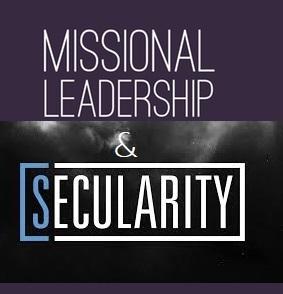
To the Ends of the Earth (and around the corner) Missional Leadership in an Age of Secularity
“The Church…is not so much an institution as an expedition sent to the ends of the earth in Christ’s name.”
Lesslie Newbigin made this bold declaration in his 1960’s work Trinitarian Doctrine for Today’s Mission. The English born, Church of Scotland sent, Church of South India consecrated Bishop became the first Director of the World Council of Church’s Division of World Mission and Evangelism in Geneva before returning home to a secularized United Kingdom. Once repatriated, he learned to apply his missionary skill set from abroad to the very country that once sent him out to the mission field.
Newbigin is a fascinating example of a missionary sent out (in a classic sense for “foreign mission”) only to return from the mission field to find an equally (if not more) pressing need for mission and evangelism – not at the ends of the earth but just around the corner. His story reflects the changing nature of gospel and culture in the late twentieth and early twenty-first centuries as the West transitioned out of the 1500-year experiment of church privilege with state power known as Christendom. Since the early 4th Century and Roman Emperor Constantine’s embrace, or domestication, of the Christian movement the institution of the Church has been a solid partner of the culture in moral, spiritual, political, and economic power.
The great unravelling of that privileged status in the West in general, and Canada in particular, has left many Christians here today feeling a bit bewildered and overwhelmed by the pace of change. Now, the church has moved from central to peripheral, from the courts of power to the margins. Recent research by Presbyterian and United Church scholars Stuart Macdonald and Brian Clarke have narrated the steps of mainline Christian denominational decline in the final decades of the last century. In Leaving Christianity Macdonald and Clarke describe the contemporary context this way:
Decline in Christian affiliation, membership, and participation started in the 1960s and has picked up pace rapidly since then. This trend is likely to continue and, indeed, accelerate as an increasingly portion of the country’s population – among youth especially – have never been exposed to Christianity…. In short, Canadian society is entering into a new era, a post-Christian era. The end of Christendom, we will argue, occurred in the closing decades of the twentieth century, as churches lost their social power and their place in the nation’s cultural fabric.

Dr. Lockhart shared this content at a Mission Central round-table discussion for mission leaders and pastors, in Oct 2018.







